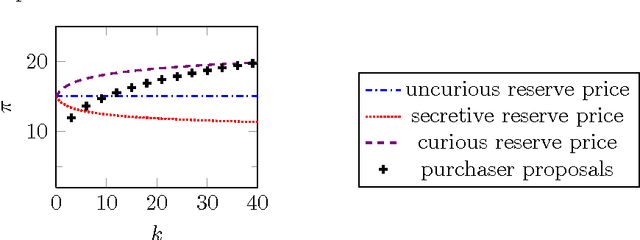Curiosity-Aware Bargaining
Paper and Code
Dec 30, 2016

Opponent modeling consists in modeling the strategy or preferences of an agent thanks to the data it provides. In the context of automated negotiation and with machine learning, it can result in an advantage so overwhelming that it may restrain some casual agents to be part of the bargaining process. We qualify as "curious" an agent driven by the desire of negotiating in order to collect information and improve its opponent model. However, neither curiosity-based rational-ity nor curiosity-robust protocol have been studied in automatic negotiation. In this paper, we rely on mechanism design to propose three extensions of the standard bargaining protocol that limit information leak. Those extensions are supported by an enhanced rationality model, that considers the exchanged information. Also, they are theoretically analyzed and experimentally evaluated.
 Add to Chrome
Add to Chrome Add to Firefox
Add to Firefox Add to Edge
Add to Edge